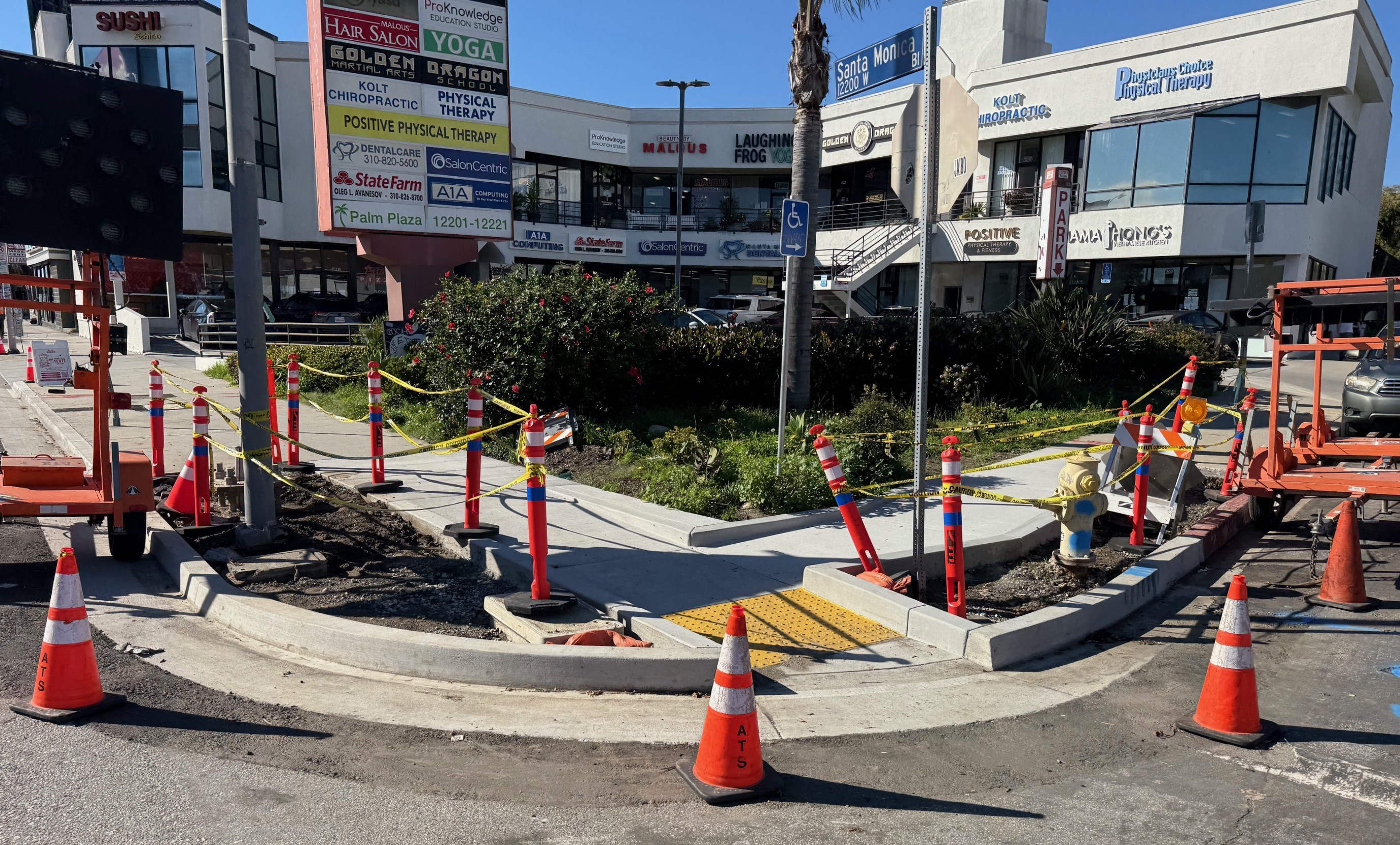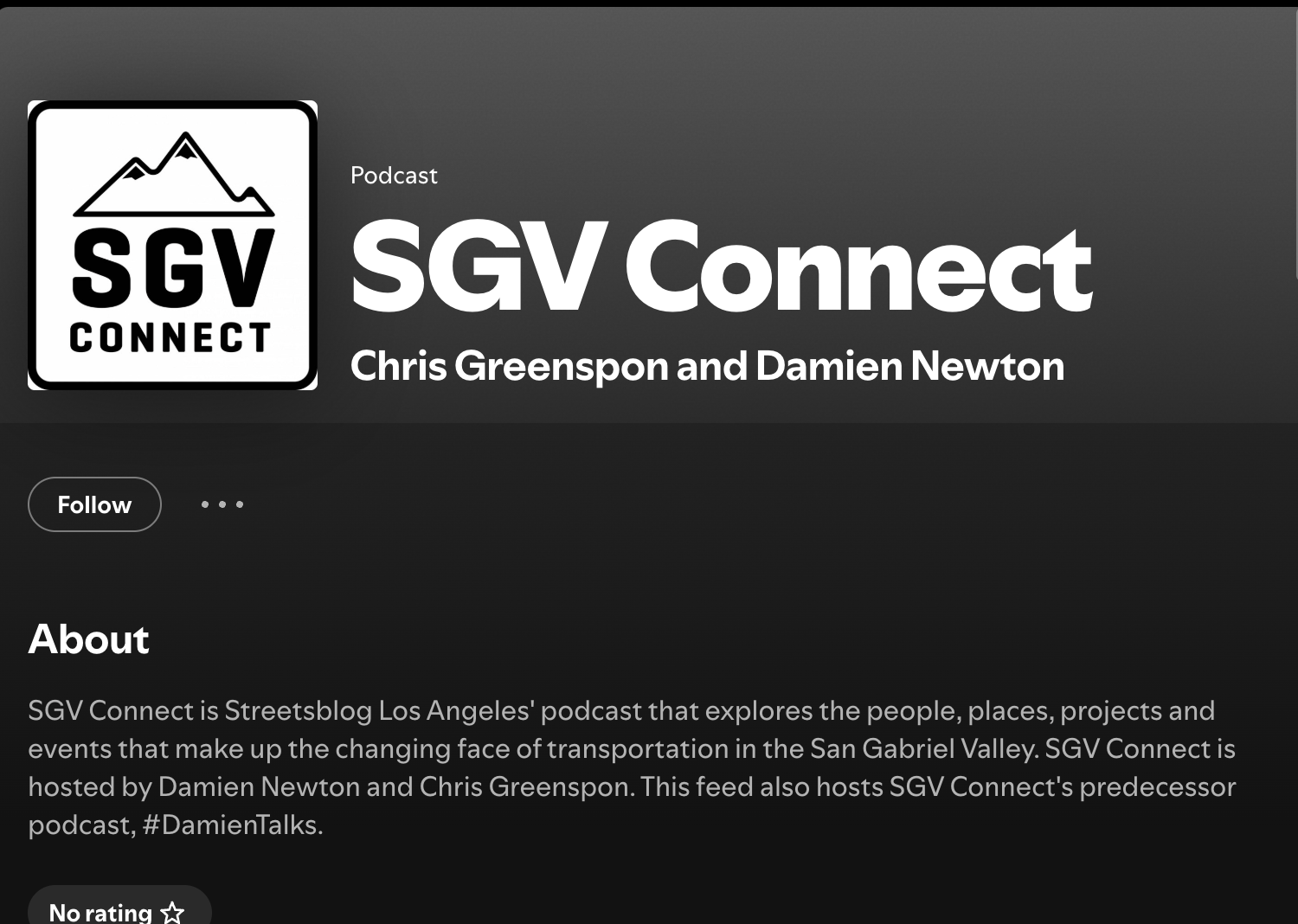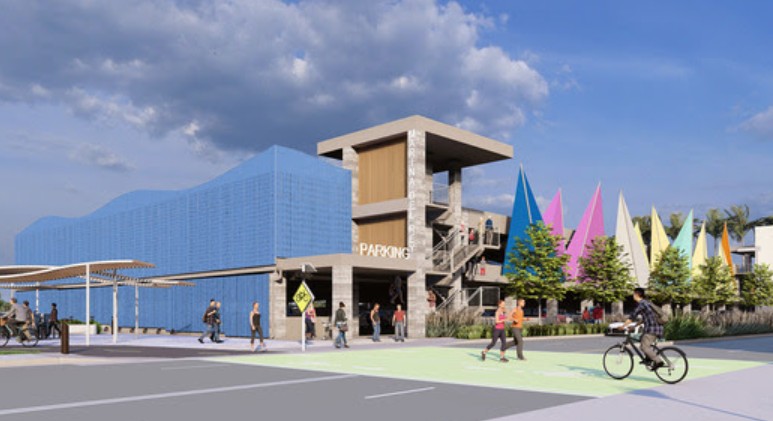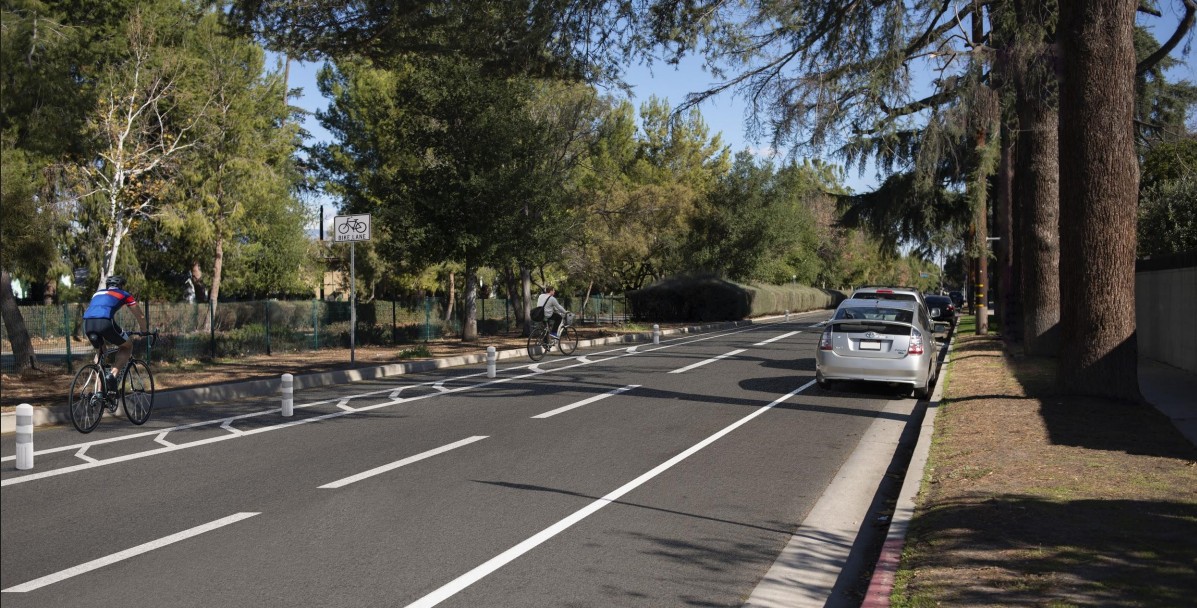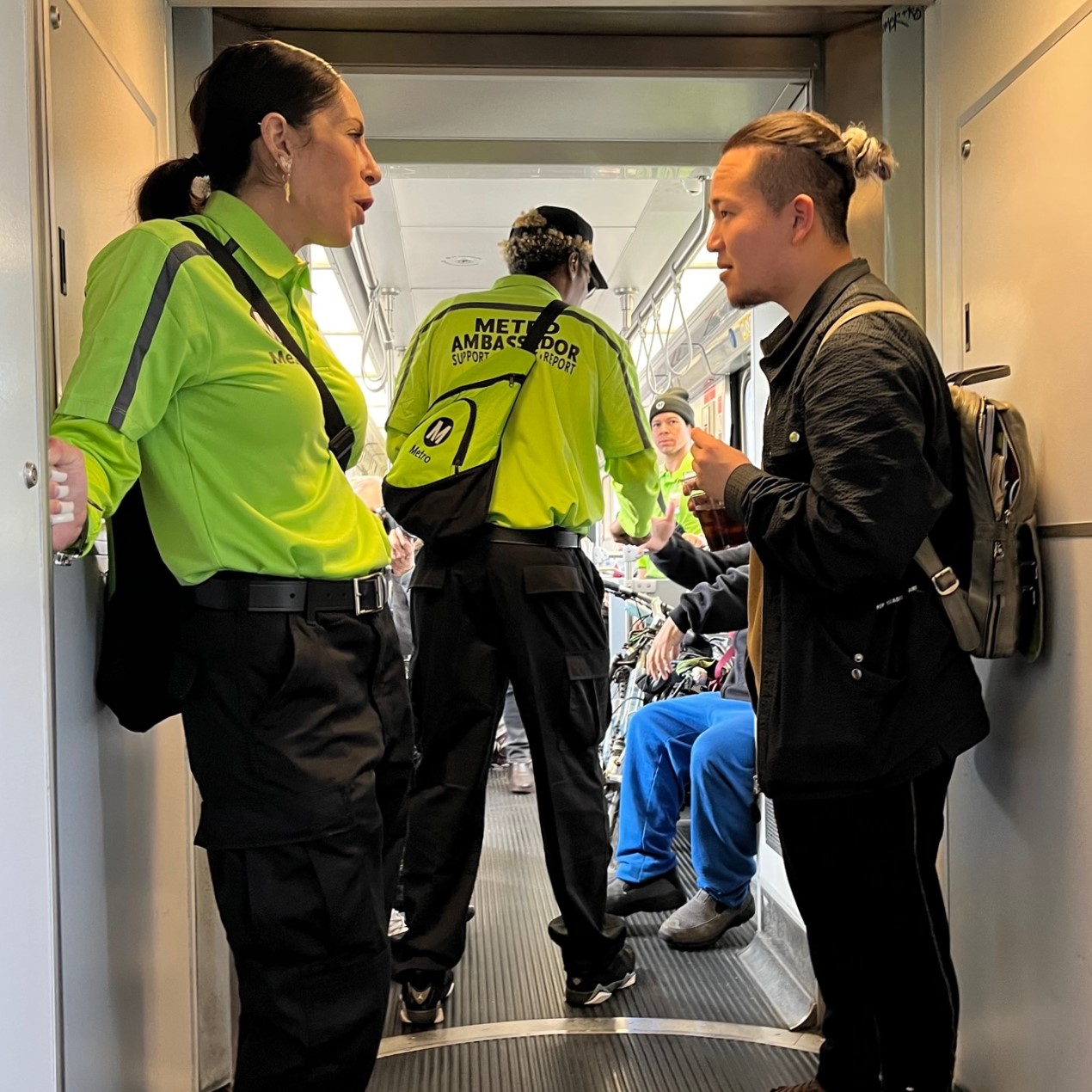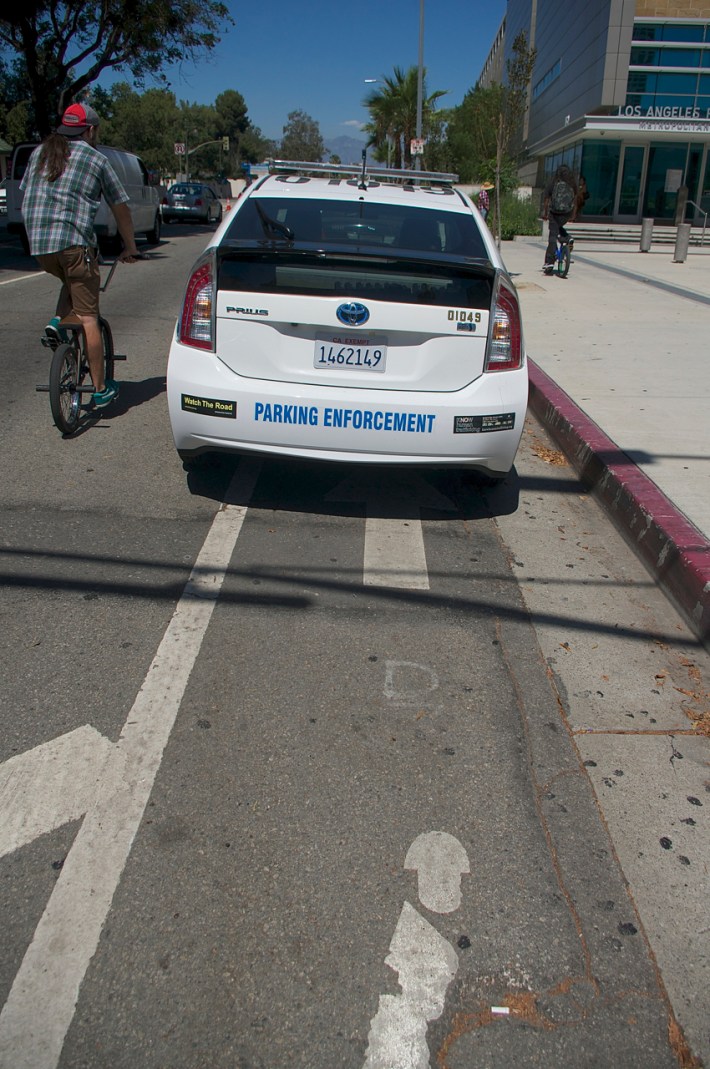
Tap tap tap.
The parking enforcement officer looked up from his phone.
When he rolled down his window, I smiled and asked politely about his having parked in the bike lane on Los Angeles Street.
There was a long pause.
"And?" he raised his eyebrows.
Having only expected some, not total, disdain, I stuttered my way through my concerns about safety.
The lanes along Los Angeles St. between 1st and Aliso Streets are regularly blocked, usually by official vehicles that sit there all day, I gestured to the line of cars parked ahead of him, including an LAPD cruiser. The presence of the cars in the bike lane, I explained, meant that cyclists were forced to move into what could be a very fast-moving traffic lane on an often busy street.
He offered no response. Just judgmental eyebrows of silence.
I switched tacks and stuttered my way through a suggestion that, perhaps as parking enforcement, he might be able to help mitigate these problems by enforcing the codes. Vulnerable folks needed his help, I pleaded.
More silence. More eyebrows.
Finally, he muttered, "I have police business," rolled up his window, and went back to his phone. A minute later, he exited the car and leisurely strolled toward the detention center.
Well, I thought. This was one of the less productive exchanges I've had in a while.
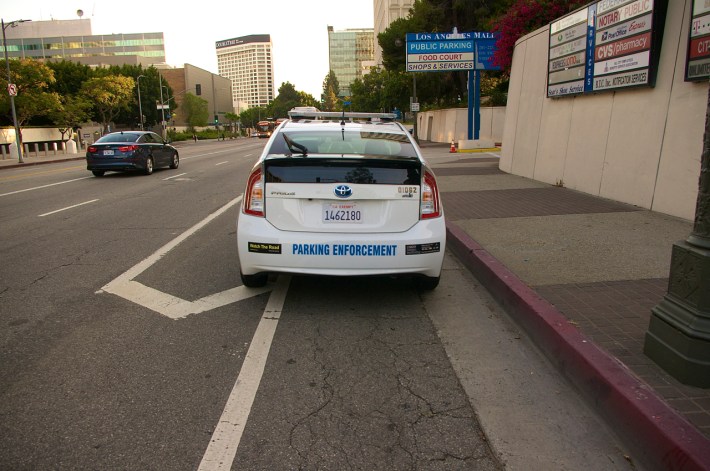
* * *
Unless I witness an incident where someone's safety has been compromised, I am generally not someone who enjoys claiming "bicycle rights!" Probably because doing so reminds me of that Portlandia clip of Fred Armisen obnoxiously barging his way through town.
But there is something about the parking habits of Los Angeles' finest and other city agents on this street that is troubling to me.
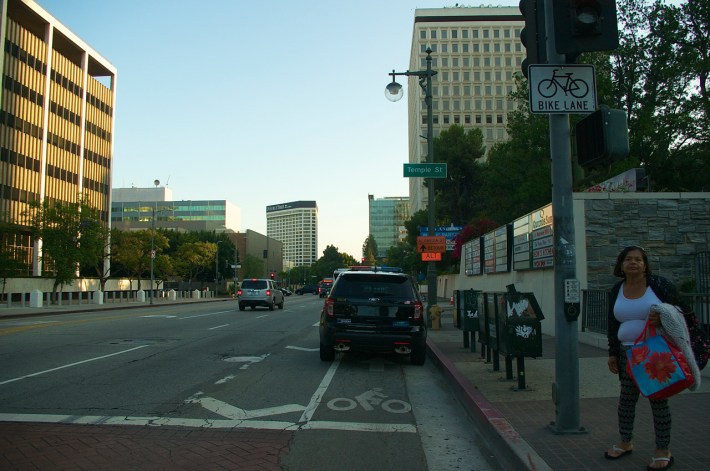
As I noted here, when I first wrote about this a few months ago, the blatant disregard of city codes in the very section of downtown where the folks that are tasked with generating, implementing, and enforcing our city's rules spend much of their day doesn't bode well for how rules might be enforced and adhered to in other parts of the city.
And the treatment of the bike lanes as non-vital infrastructure by city officials encourages regular folks to do the same elsewhere. I frequently run into drivers who create dangerous conditions on busy streets by being just conscientious enough to pull over to use their cellphone, but not so conscientious that they exit the bike lane to do so. Similarly, valets and their clients often treat the bike lane as the proper place to hand off the car. Conditions at Mohawk Bend, for example (a bar on Sunset Blvd. in Silver Lake), are particularly hazardous for cyclists at night, as the bar is located at a dangerous curve where traffic tends to pick up speed and the drivers darting in and out of the bike lane often do so without warning or fling their doors wide open unexpectedly.
Now, with the passage of the Mobility Plan 2035 (which will guide the implementation of more bike infrastructure, among other things) and the signing of a mayoral directive committing city departments to uphold Vision Zero (the effort to reduce traffic fatalities to zero by the year 2025), the question of how law enforcement, parking enforcement, and even Homeland Security (below) treat bike lanes becomes all the more urgent.
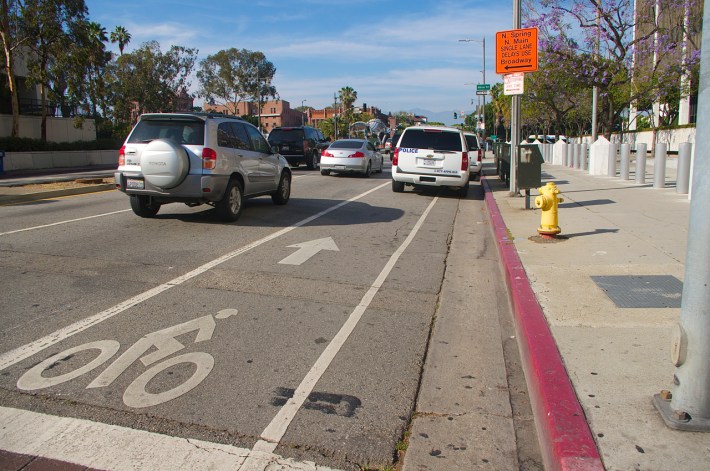
There is not a lot of point in overhauling the city's mobility network and laying down costly infrastructure if city agents don't value the safety of those trying to use it.
And people do indeed need to use that infrastructure.
In the communities that I cover -- South L.A. and Boyle Heights, two lower-income communities of color -- the vast majority of the cyclists I see are riding out of necessity. They do not have the luxury of being able to drive when conditions feel unsafe. They still have to get back and forth to work or school, and they have a right to be able to do so safely. Just like everyone else.
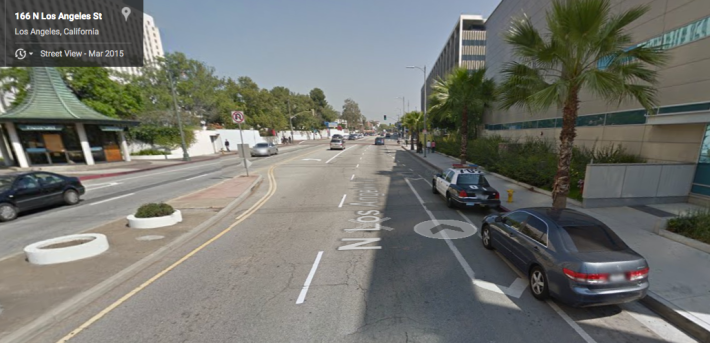
Given that the Steering Committee for Vision Zero will be jointly led by the L.A. Department of Transportation and the LAPD -- the very departments whose officers are tasked with enforcing parking and traffic codes -- now seems like a really good time for the agents of both to show Angelenos they are aware that there is a difference between a bike lane and a parking space, and that they are willing to uphold it.
